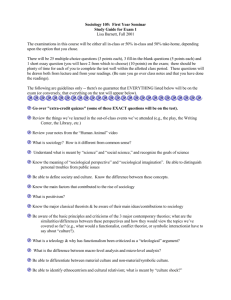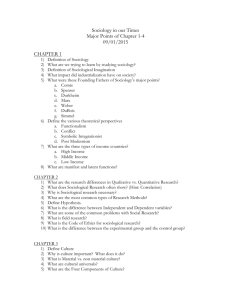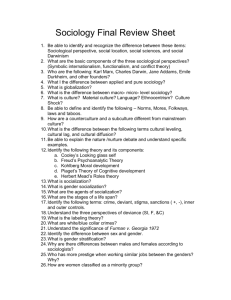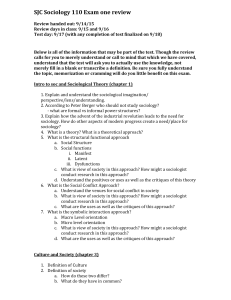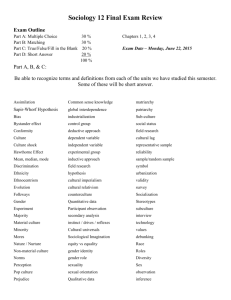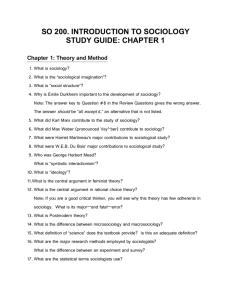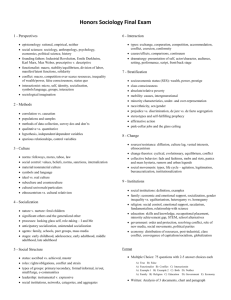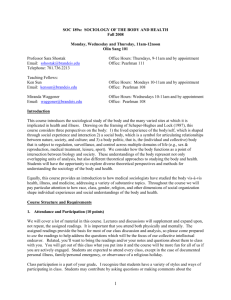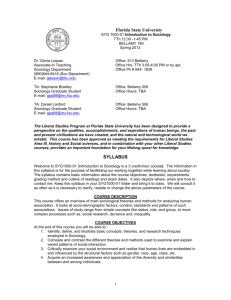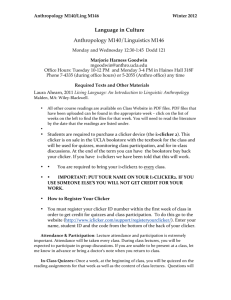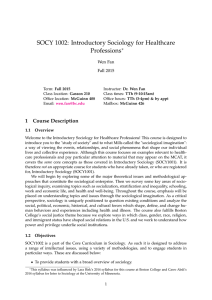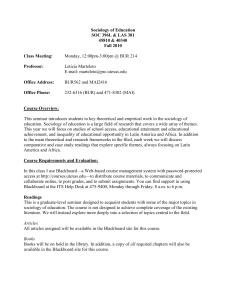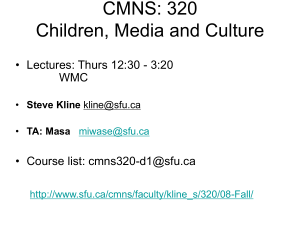Sociology 105 Study Guide for Exam 1 Lisa Barnett, Fall 2001 The
advertisement
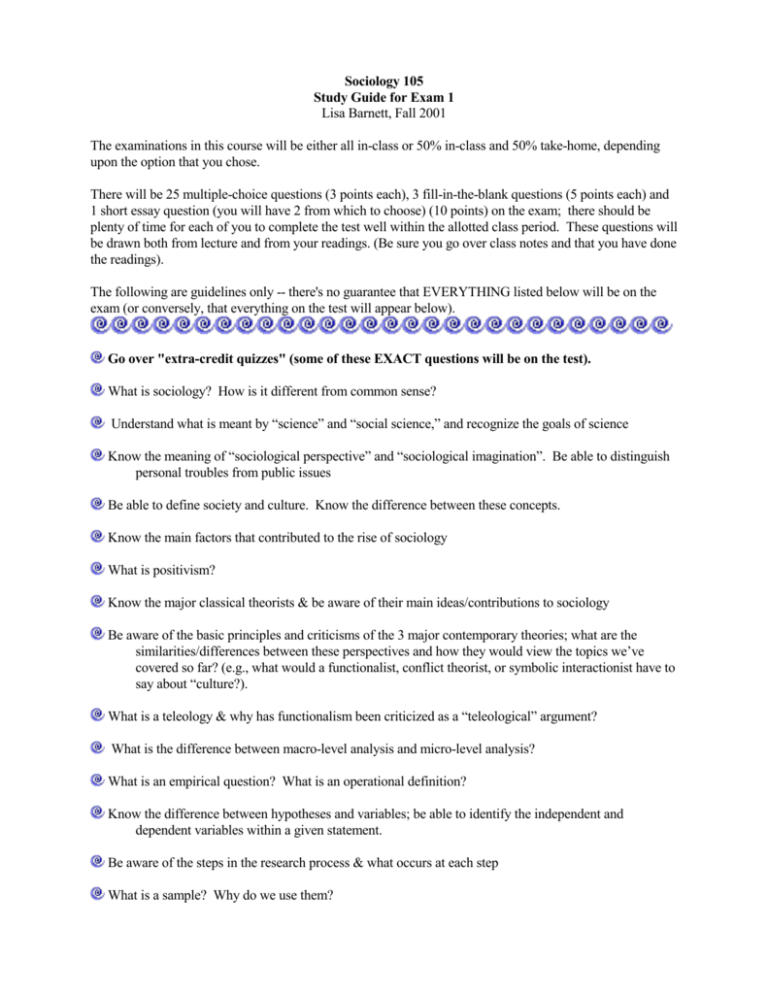
Sociology 105 Study Guide for Exam 1 Lisa Barnett, Fall 2001 The examinations in this course will be either all in-class or 50% in-class and 50% take-home, depending upon the option that you chose. There will be 25 multiple-choice questions (3 points each), 3 fill-in-the-blank questions (5 points each) and 1 short essay question (you will have 2 from which to choose) (10 points) on the exam; there should be plenty of time for each of you to complete the test well within the allotted class period. These questions will be drawn both from lecture and from your readings. (Be sure you go over class notes and that you have done the readings). The following are guidelines only -- there's no guarantee that EVERYTHING listed below will be on the exam (or conversely, that everything on the test will appear below). Go over "extra-credit quizzes" (some of these EXACT questions will be on the test). What is sociology? How is it different from common sense? Understand what is meant by “science” and “social science,” and recognize the goals of science Know the meaning of “sociological perspective” and “sociological imagination”. Be able to distinguish personal troubles from public issues Be able to define society and culture. Know the difference between these concepts. Know the main factors that contributed to the rise of sociology What is positivism? Know the major classical theorists & be aware of their main ideas/contributions to sociology Be aware of the basic principles and criticisms of the 3 major contemporary theories; what are the similarities/differences between these perspectives and how they would view the topics we’ve covered so far? (e.g., what would a functionalist, conflict theorist, or symbolic interactionist have to say about “culture?). What is a teleology & why has functionalism been criticized as a “teleological” argument? What is the difference between macro-level analysis and micro-level analysis? What is an empirical question? What is an operational definition? Know the difference between hypotheses and variables; be able to identify the independent and dependent variables within a given statement. Be aware of the steps in the research process & what occurs at each step What is a sample? Why do we use them? Know the difference between reliability and validity Be able to differentiate between material culture and non-material/symbolic culture. Be able to identify ethnocentrism and cultural relativism; what is meant by “culture shock?” Know the various elements of culture (e.g., symbols, language, gestures, etc.) and be able to identify different types of social sanctions. How are “laws” and “internalization” related to the issue of culture? Know that nothing about culture is inherently “correct” or “normal” What is the “Sapir-Whorf” hypothesis? How is language related to reproducing the structure of a society? What is socialization? What are some agents/agencies of socialization? How does social class influence the way that a child is socialized? Know the primary contributions of Cooley, Mead, and Erikson to our understanding of socialization Know the difference between manifest functions and latent functions. What are the differences between primary socialization, adult socialization, anticipatory socialization, and resocialization? What are “total institutions” and why are they so effective? REMEMBER: This is intended as a GUIDE to help you prepare for the exam -- it is not a comprehensive review of what has been covered in class and in your readings. You are responsible for any material covered in class or in the assigned readings. This exam will generally cover the following sections from the reading: Sullivan: Chapters 1-3 C & B: Articles #2, #3, #5, #6, #8, #9, #10, #39, #11, #12, #14, Note that I generally did not include questions from these articles on the study guide. This does not absolve you of responsibility for the content of these readings! (i.e., there WILL be questions from these readings on the exam!)
